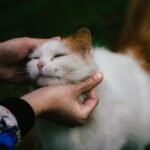Have you ever returned home to find your cat acting a little off, maybe extra cuddly or even mischievous? Cats are often seen as mysterious, independent creatures, but anyone who has truly bonded with a feline knows they are deeply emotional beings. When you’re away, your absence can leave a bigger hole in your cat’s heart than you might imagine. These clever, sensitive animals express longing in ways both subtle and obvious — if you know what to look for. Let’s unravel the fascinating emotional clues your cat leaves behind when they genuinely miss you.
Unusual Vocalizations
One of the first signs that your cat is missing you is a change in their “language.” You may notice them meowing more than usual, or their cries might sound more urgent or distressed. Some cats even develop a “crying” meow that’s noticeably different from their normal chatter. It’s as if they’re calling out for you, hoping you’ll answer. These vocalizations are their way of expressing loneliness or seeking reassurance. A normally quiet cat who suddenly becomes talkative is often trying to tell you something important. Their emotional world can be heard in these heartfelt sounds.
Clinginess and Extra Affection
If your cat suddenly becomes a little shadow, following you from room to room, it’s a strong clue they missed you during your absence. Cats who crave more physical closeness, such as rubbing against your legs or curling up in your lap at every opportunity, are expressing their longing for your companionship. This need for closeness can be heartwarming and sometimes even overwhelming, especially if your cat is usually more independent. Their affection is real and deep, revealing just how important you are in their little world. They might even insist on being held, purring loudly as if to soak up every moment with you.
Loss of Appetite
Emotional distress can affect your cat’s eating habits. If you notice your cat isn’t as enthusiastic about their food or leaves their bowl untouched, it could be a sign they’re missing you. Cats are creatures of habit, and a sudden change in routine — like your absence — can make them feel unsettled. Sometimes, they may even refuse treats or their favorite meals. This loss of appetite is not just a physical response, but a subtle cry for the comfort and routine you bring. It’s their way of saying that things just aren’t the same without you around.
Destructive Behavior
Sometimes, a lonely cat will act out in ways that surprise you. You might come home to find shredded toilet paper, scratched furniture, or other mischief. While it’s easy to get frustrated, these acts often stem from emotional distress rather than mischief. Your cat might be trying to cope with the stress of your absence by redirecting their energy. It’s their way of expressing frustration, boredom, or anxiety — all emotions tied to missing you. Think of it as their version of nervous fidgeting or pacing.
Changes in Litter Box Habits
A cat who suddenly forgets their litter box training may be sending you a big emotional message. If your well-trained feline starts eliminating outside the box, especially while you’re away, it’s often a response to stress or sadness. This behavior is never about revenge; instead, it’s a sign that your cat is struggling with the change in their environment — namely, your absence. They may even choose places that smell like you, such as your bed or clothes pile, as a way to surround themselves with your scent.
Sleeping in Your Spot
Cats are creatures of comfort, and your scent is one of their favorite things in the world. When you’re gone, you might find your cat curled up in your chair, on your pillow, or in the exact spot where you usually sit. This isn’t just about finding a cozy place — it’s a heartfelt attempt to feel close to you. Your scent provides comfort and security, reminding them of your presence. It’s almost as if they’re holding onto a piece of you until you return, snuggled in the warmth of your memory.
Waiting by the Door or Window
Some cats become little sentinels, waiting patiently by the door or staring out the window for any sign of your return. This behavior can be especially touching — it’s a powerful visual display of hope and longing. You may notice your cat perk up at the sound of keys or footsteps, eyes wide with anticipation. Their unwavering watch is a testament to how much they value your presence. It’s their way of saying, “I’m right here, waiting for you.”
Bringing You “Gifts”
While not always pleasant, a cat who leaves you little surprises — from toys to (unfortunately) the occasional bug — is expressing their emotional bond. These “gifts” are a sign that your cat has been thinking of you, even in your absence. In the wild, cats bring food to those they care about; at home, they translate this instinct into presenting you with their treasures. It’s an odd but sincere expression of longing and affection. Your absence might even inspire more of these offerings as they try to reconnect with you.
Grooming Changes
A happy, content cat spends a lot of time grooming. But when they’re feeling lonely or stressed, this behavior can change dramatically. Some cats stop grooming altogether, their fur becoming dull or unkempt. Others may over-groom, licking themselves raw in an attempt to soothe their anxiety. Both extremes are emotional signals that your absence is deeply affecting them. Grooming is about comfort and self-care, so when this pattern changes, it’s their way of showing something’s not right.
Restlessness and Pacing
Cats who miss their humans often seem restless, unable to settle in one place for long. You may find them wandering the house, sniffing your belongings, or pacing from room to room. This restless energy is a clear sign of emotional upheaval. They’re searching for you, trying to make sense of the quiet and emptiness left behind. Sometimes, they’ll pause at your favorite spots or meander through the house in a pattern that mirrors your daily routine. Their restlessness is a moving testament to how much your presence matters.
Withdrawal and Hiding
Not all cats express longing with extra affection; some do the opposite. If your outgoing kitty suddenly retreats under the bed or spends more time alone, they might be feeling sad about your absence. Withdrawal is a way for them to cope with the discomfort of missing you. They may avoid play or interaction, preferring to be alone with their feelings. This emotional shutdown can be heartbreaking to witness, especially in a cat who’s usually the life of the party. It’s their silent way of saying, “I wish you were here.”
Overexcitement When You Return
The moment you walk through the door, your cat’s reaction can speak volumes. Some cats greet their humans with an explosion of energy — rubbing, purring, chirping, or even playful leaps. This burst of excitement is a pure, unfiltered expression of relief and joy. Your return restores the balance in their world, and they can’t hide how happy they are. It’s the ultimate emotional clue that your absence was noticed and felt deeply. Their exuberant welcome is a celebration of your bond, a furry reminder that you truly were missed.

Suhail Ahmed is a passionate digital professional and nature enthusiast with over 8 years of experience in content strategy, SEO, web development, and digital operations. Alongside his freelance journey, Suhail actively contributes to nature and wildlife platforms like Feline Fam, where he channels his curiosity for the Feline into engaging, educational storytelling.
With a strong background in managing digital ecosystems — from ecommerce stores and WordPress websites to social media and automation — Suhail merges technical precision with creative insight. His content reflects a rare balance: SEO-friendly yet deeply human, data-informed yet emotionally resonant.
Driven by a love for discovery and storytelling, Suhail believes in using digital platforms to amplify causes that matter — especially those protecting Earth’s biodiversity and inspiring sustainable living. Whether he’s managing online projects or crafting wildlife content, his goal remains the same: to inform, inspire, and leave a positive digital footprint.






